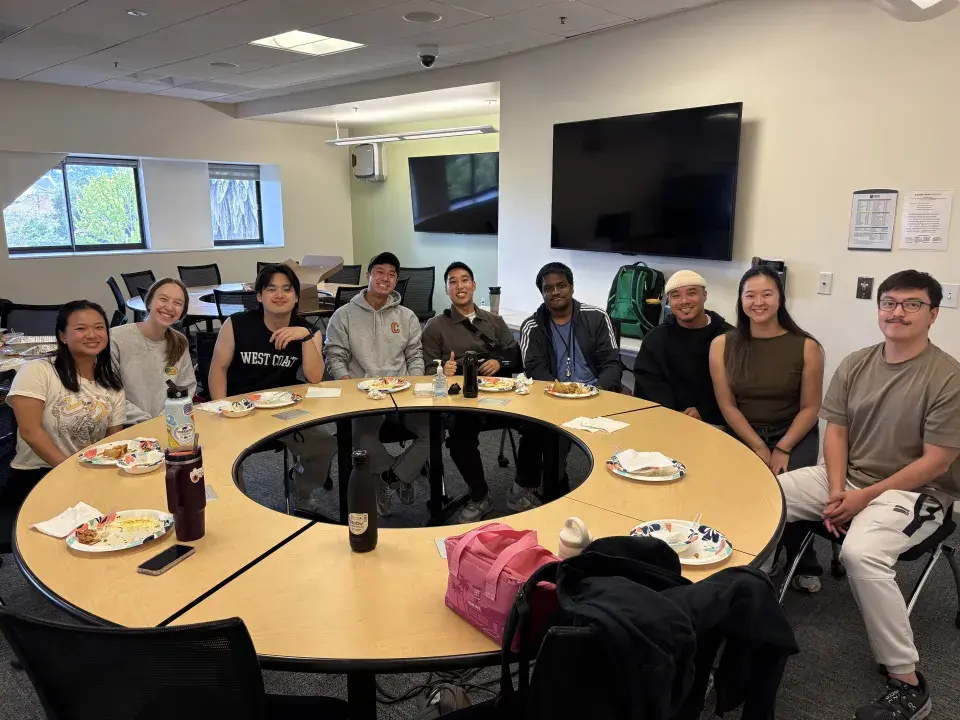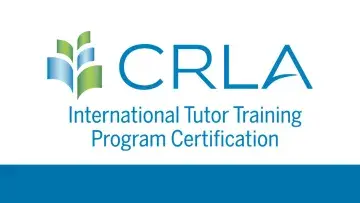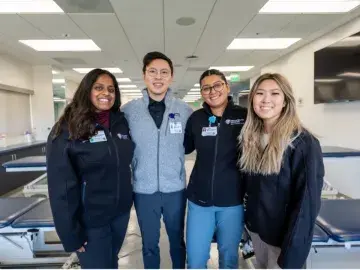SMU Tutoring Program Earns CRLA Certification Marking a New Chapter of Growth and Accountability

Over the past year, Samuel Merritt University’s (SMU) tutoring program has undergone a significant transformation, establishing higher standards of practice, rebuilding trust, and expanding access to academic support across campus.
The progress culminated in October with the program’s official International Tutor Training Program Certification from the College Reading and Learning Association (CRLA), a nationally recognized credential that sets the benchmark for excellence in higher education tutoring centers. The certification was pursued as a way to bring strong national standards to SMU’s tutoring services and demonstrate that the program has been rigorously vetted.
Path to CRLA Certification
Erika Nelson, Director of Academic Support, explains that “tutoring, as a recognized field with dedicated professionals, is still relatively new. There are a lot of misconceptions about who goes to tutoring, who can be a tutor, and what a good tutoring program looks like. This can lead to underutilization, or even outright mistrust of tutoring, by staff and faculty. This certification can help combat that.”
Immediately upon joining SMU in August of 2024, Erika began pursuing the CRLA certification. Prior to her arrival, tutoring at SMU operated as an open sign-up service with little vetting. By contrast, the CRLA requires formal hiring processes, and tutors must be interviewed, meet GPA requirements, and earn an A or B in the subject they tutor.
To meet the organization’s rigorous standards, Erika’s team submitted a comprehensive tutor training plan, a research-informed curriculum with citations, detailed documentation of how tutoring hours and activity are tracked, and a structured evaluation system that includes session observations and feedback.
The process concluded this October with the certification after an extensive monthslong review. Erika hopes the designation will encourage more students to view tutoring as a trusted, professional resource.
“To me personally, earning this certification makes me very proud of the hard work we have done,” she reflects. “It took many months of compiling documents, adjusting our training, pulling usage data, and creating tutor attendance reports.” For Erika, seeing the rebuilt program deemed up to standard by peers in the field has been especially gratifying.
Peer tutor and ELMSN-FNP student, Nadia Salim Arouni says that “being part of a CRLA-certified program makes me feel proud of the work we do,” adding that the certification reinforces that “SMU invests in quality academic support and in our growth as tutors.”
A New Program Model
Since she began, Erika introduced key structural and operational changes to strengthen the consistency and quality of tutoring services, including enhanced training, clearer accountability, expanded workshops, and more robust data reporting. Three months into Erika’s tenure, Patrick Reilly joined as Academic Support Coordinator, further advancing these efforts.
All tutors now complete a two-hour pre-work training and attend monthly staff meetings focused on skill development, reflection, and feedback. Tutors must maintain at least two hours of weekly availability to ensure reliability. In addition to one-on-one support, the program now offers in-class workshops on test-taking, learning styles, study strategies, and time management, providing students with practical tools they can apply independently. An annual report summarizing usage, feedback, and growth reinforces transparency and continuous improvement.
Nadia, who has been a peer tutor since April 2024, has seen these changes firsthand. “Erika and Patrick are incredibly supportive and communicative. Under their leadership, the program feels cohesive and collaborative,” she says. The intentional hiring process and formal evaluations have “significantly raised the level of professionalism and provided us with supportive feedback to grow not only as tutors but also as professionals,” she adds.
Erika echoes this sentiment, noting that one of the most exciting benefits of certification is the expanded professional development it offers tutors. “They can list the certification on their resume, and each year we can nominate one of our tutors for the national Outstanding Tutor Award,” she explains.
Impact and Results
One of the program’s goals was to increase both the number of appointments and the number of students who feel comfortable accessing tutoring—and both metrics have grown.
Across the two semesters of tracked data, appointment volume rose from 1,209 in the Spring to 1,685 in the Fall, while unique users increased from 206 to 372. Now, 25% of the student body uses tutoring, up from 15% just months prior.
While academic success can be difficult to measure purely by grades, the data shows a clear trend of more students seeking tutoring, returning for additional sessions, and viewing it as a trusted resource.
“It has been really rewarding to see more students using tutoring this year,” says Nadia. “Peer-to-peer support creates a safe, supportive space for learning, and I love seeing more students take advantage of it.”
Next Steps for The Program
With the CRLA certification in place, SMU’s tutoring program enters a new phase of growth, grounded in continuous improvement and a commitment to student success.
Erika and Patrick are already planning the program’s next steps—one goal is to bring tutors of separate programs together to cohost events, a way to promote interprogram collaboration. “The more the students are involved in their own support, the more other students will be drawn to our services,” Erika explains.
As SMU continues to expand its academic support services, the tutoring program’s next chapter will focus on deepening its impact through data-informed strategies and continued investment in student learning.


